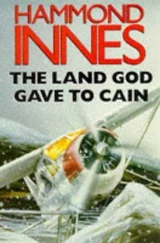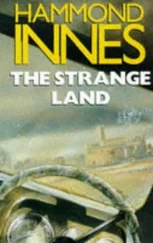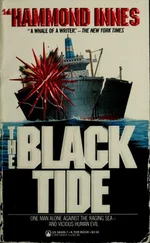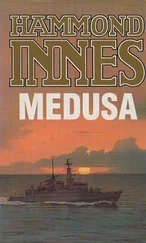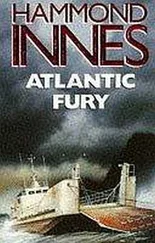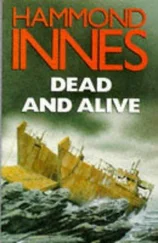Hammond Innes - The Lonely Skier
Здесь есть возможность читать онлайн «Hammond Innes - The Lonely Skier» весь текст электронной книги совершенно бесплатно (целиком полную версию без сокращений). В некоторых случаях можно слушать аудио, скачать через торрент в формате fb2 и присутствует краткое содержание. Жанр: Прочие приключения, на английском языке. Описание произведения, (предисловие) а так же отзывы посетителей доступны на портале библиотеки ЛибКат.
- Название:The Lonely Skier
- Автор:
- Жанр:
- Год:неизвестен
- ISBN:нет данных
- Рейтинг книги:3 / 5. Голосов: 1
-
Избранное:Добавить в избранное
- Отзывы:
-
Ваша оценка:
- 60
- 1
- 2
- 3
- 4
- 5
The Lonely Skier: краткое содержание, описание и аннотация
Предлагаем к чтению аннотацию, описание, краткое содержание или предисловие (зависит от того, что написал сам автор книги «The Lonely Skier»). Если вы не нашли необходимую информацию о книге — напишите в комментариях, мы постараемся отыскать её.
The Lonely Skier — читать онлайн бесплатно полную книгу (весь текст) целиком
Ниже представлен текст книги, разбитый по страницам. Система сохранения места последней прочитанной страницы, позволяет с удобством читать онлайн бесплатно книгу «The Lonely Skier», без необходимости каждый раз заново искать на чём Вы остановились. Поставьте закладку, и сможете в любой момент перейти на страницу, на которой закончили чтение.
Интервал:
Закладка:
It was dark and the snow was falling when we arrived at Cortina. Once out of the lights of the station our sense of pleasure at having finished the journey was damped by the blanket of steadily falling snow. The soft sound of it was audible in the still night. It hid the lights of the little town and muffled the chained wheels of the hotel bus.
Cortina is like all winter sports’ resorts. It is a veneer of civilisation’s luxuries planted by hotel-keepers in the heart of a wild country of forests, snow and jagged peaks. Because of the lateness of our arrival, we had arranged to stay the first night at the Splendido and go on up to Col da Varda the next day.
As soon as we passed through the Splendido’s swing doors, the glittering palace lapped its luxury round us like a hot bath. In every room central heating thrust back the cold of the outside world. There were soft lights, dance bands, and the gleam of silver. Italian waiters, with a hundred different drinks, threaded their way through a colourful mob of men and women from a dozen different countries. Everything was laid on — ski instructors, skating instructors, transport to the main runs, ice hockey matches, ski jumping. It was like a department store in which the thrills of the snow country can be bought at so much a yard. And outside the snow fell heavily.
I picked up a pile of brochures on Cortina whilst waiting for dinner. One announced it as ‘the sunny snow paradise in the Dolomites’. Another became lyrical over the rocky peaks, describing them as ‘pinnacles rising out of the snow and looking like flames mounting into the Blue Sky’. They spoke with awe of fifty-eight different ski runs and, referring to summer sport at Cortina, stated, ‘it is almost impossible to be tired at Cortina: Ride before breakfast, golf before lunch, tennis in the afternoon and a quick bath before dressing for dinner — still one is ready to dance until the early hours.’ Nothing out of the ordinary could happen here, I felt. They had made a playground of the cold snow, and the grim Dolomite bastions were pretty peaks to be admired at sunset with a dry Martini.
Joe Wesson had something of the same reaction. He suddenly materialised at my elbow. He wore rubber-soled shoes and moved quietly for such a large man. ‘Not a hair out of place, eh?’ he said, looking at the brochure over my shoulder. ‘It’s like the Italians to try to tame Nature with a pot of brilliantine. But it can’t be far from here that twenty thousand men died trying to get Hannibal’s elephants through the passes. And only a year or two back, I suppose, a lot of our blokes were frozen to death attempting to get through from Germany.’
I tossed the brochures back on to the pile. ‘It might be Palm Beach, or the Lido, Venice, or Mayfair,’ I agreed. ‘Same people — same atmosphere. Only I suppose it’s all white outside.’
IB He gave a snort of disgust and led the way in to dinner.
‘You’ll be glad enough to return to it,’ he muttered, ‘after you’ve had a day or two up in that damned hut.’
As I sat down, I glanced round the room at the other diners, wondering whether the girl who had signed herself ‘Carla’ in that photograph would Be there. She wasn’t, of course, though the majority of the women in the room were Italian. I wondered why Engles should expect her to be at Cortina.
‘No need to try and catch their eyes,’ Joe Wesson said through a mouthful of ravioli. ‘Judging by the looks of most of ‘em, you’ve only got to leave your bedroom door open.’
‘You’re being unnecessarily coarse,’ I said.
His little bloodshot eyes twinkled at me. ‘Sorry, old man. Forgot you’d been in Italy long enough to know your way around. Is it a contessa or a marchesa you’re expecting?’
‘I don’t quite know,’ I replied. ‘It could just as well be a signora, or even a signorina, or just a common or garden little tart.’
‘Well, if it’s the last you’re wanting,’ he said, ‘you shouldn’t have much difficulty in this assembly.’
After dinner I went in search of the owner of the hotel. I wanted to find out what local information I could about Col da Varda and its slittovia. Our accommodation at the chalet had been booked through him and I thought, therefore, that he should be able to tell me what there was to know.
Edoardo Mancini was a short stocky man of very light colouring for an Italian. He was part Venetian and part Florentine and he had lived a long time in England. In fact, he had once been in the English bobsleigh team. He had been among the great of the bobsleigh world. But he had had to pack it up ten years ago after a really bad smash. His right arm had been broken in so many places that it was virtually useless.
Once he had doubtless been a slim, athletic figure, but when I met him he had put on weight so that his movements were slow. He was a heavy drinker. I imagine that started after his final accident. It was not difficult to pick him out among his guests. He looked almost a cripple, his big body moving slowly, almost stiffly among them. He had broken practically every bone in his body at one time or another and I believe he carried quite a weight of platinum around in place of missing bone. But in spite of this, his rather dissipated features were genial under his mop of titian hair, which rose almost straight up from his scalp, giving him height and a curiously youthful air. He was a very wealthy man and the biggest hotelier in Cortina.
Most of this I learned from an American I had met in the bar before dinner. He had been a Colonel in the American Army and had had something to do with Cortina when it was being run as an Allied leave centre.
I found Edoardo Mancini in the bar. He and his wife were having a drink with my American friend and two British officers up from Padua. The American introduced me. I mentioned that I was going up to Col da Varda the next day. ‘Ah, yes,’ Mancini said. ‘There are two of you — no? And you are planning to do a film? You see, I know who my guests are.’ And he beamed delightedly. He spoke English very fast and with just the trace of a Cockney accent mixed up with the Italian intonation. But it was very difficult to follow him, for his speech was obstructed by saliva which crept into the corners of his mouth as he talked. I imagine his jaw had been smashed up in one of his accidents and had not set properly.
‘Col da Varda belongs to the hotel, does it?’ I asked.
‘No, no — good heavens, no!’ He shook his large head vehemently. ‘You must not have that idea. I would not like you to blame all the shortcomings of the place on me. You would obtain a bad impression. My hotel is my home. I do not have anybody here, you understand. You are my guests. That is the way I like to think of all these people.’ And he waved his hand towards the colourful crowd that thronged the bar and lounge. ‘If anything is wrong, we look at it as you would say, my wife and I, we are bad hosts. That is why I will not have you accuse me of Col da Varda. It is not comfortable there. That Aldo is a fool. He does not know how to arrange people. He is lazy and, most terrible of all, he is no good for the bar. Is that not so, Mimosa?’
His wife nodded and smiled from behind her Martini. She was small and attractive and had a nice smile.
‘I will — how you say it? — sack him. Please excuse my English. It is many years since I was in England. I had hotels in Brighton and London. But that was long before the war.’
I assured him that he spoke excellent English. Indeed, if I had spoken Italian as well in my own country I should not have felt impelled to apologise.
He nodded, as though that were the reply he expected. ‘Yes, I will give him the sack.’ He turned to his wife. ‘We will give him the sack, dear, the day after tomorrow and we will put Alfredo there. He has a good wife and they will run it well.’ He put his hand on my arm. ‘In the meantime, you will not blame me — yes? I am only what your doctors would call in loco parentis at the moment. I do the bookings. But on Friday it will become a little piece of the Splendido. Then, if you stay long, you will remark a difference. But it will take time, you understand?’
Читать дальшеИнтервал:
Закладка:
Похожие книги на «The Lonely Skier»
Представляем Вашему вниманию похожие книги на «The Lonely Skier» списком для выбора. Мы отобрали схожую по названию и смыслу литературу в надежде предоставить читателям больше вариантов отыскать новые, интересные, ещё непрочитанные произведения.
Обсуждение, отзывы о книге «The Lonely Skier» и просто собственные мнения читателей. Оставьте ваши комментарии, напишите, что Вы думаете о произведении, его смысле или главных героях. Укажите что конкретно понравилось, а что нет, и почему Вы так считаете.

